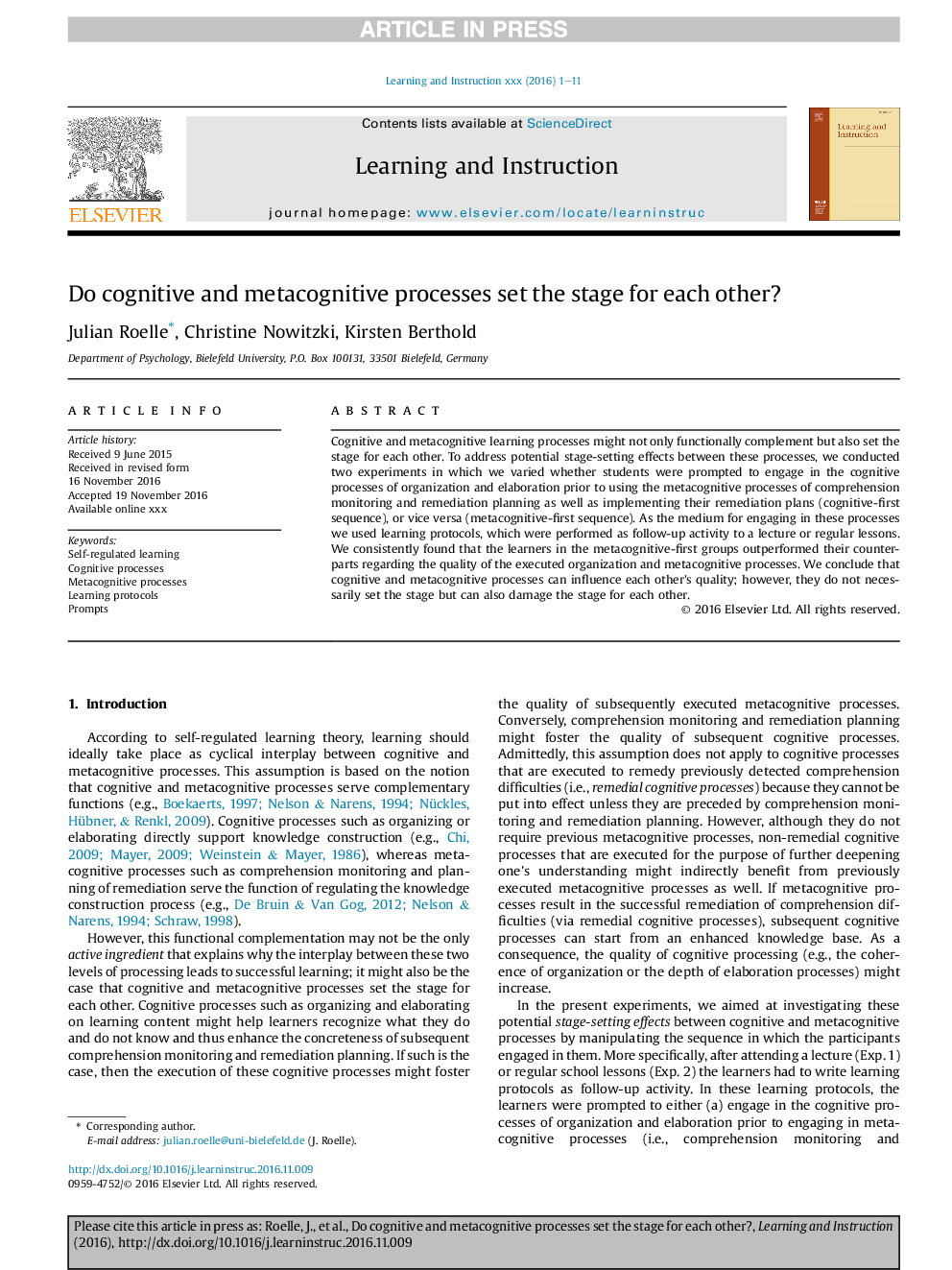| Article ID | Journal | Published Year | Pages | File Type |
|---|---|---|---|---|
| 4940238 | Learning and Instruction | 2017 | 11 Pages |
Abstract
Cognitive and metacognitive learning processes might not only functionally complement but also set the stage for each other. To address potential stage-setting effects between these processes, we conducted two experiments in which we varied whether students were prompted to engage in the cognitive processes of organization and elaboration prior to using the metacognitive processes of comprehension monitoring and remediation planning as well as implementing their remediation plans (cognitive-first sequence), or vice versa (metacognitive-first sequence). As the medium for engaging in these processes we used learning protocols, which were performed as follow-up activity to a lecture or regular lessons. We consistently found that the learners in the metacognitive-first groups outperformed their counterparts regarding the quality of the executed organization and metacognitive processes. We conclude that cognitive and metacognitive processes can influence each other's quality; however, they do not necessarily set the stage but can also damage the stage for each other.
Related Topics
Social Sciences and Humanities
Psychology
Developmental and Educational Psychology
Authors
Julian Roelle, Christine Nowitzki, Kirsten Berthold,
